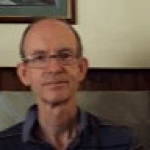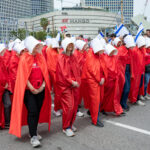Summary: A talk given at a public meeting sponsored by the International Marxist-Humanist Organization, On the Russian Invasion of Ukraine and Our Response, 27 March 2022.
Thanks to Rehmah for reading this on my behalf, while I am unable to do so myself, having lost my voice due to a cold and cough.
I am a member of the International Marxist-Humanist Organization, which is hosting this meeting. I’m also the author of our statement Stop Russia’s Imperialist War on Ukraine! Solidarity with the Ukrainian People’s Resistance, posted on 28 February.
First of all, I would like to express our solidarity with the people of Ukraine, in particular our fellow socialists and union activists and all who are working towards a new, classless society. And to all in Russia who are opposed to Putin’s war and the attack on democratic freedoms that goes with it. And to those all around the world who support this cause.
IMHO recently affiliated to the Ukraine Solidarity Campaign.
An issue of great concern to us recently has been the importance of a united front to defend democratic freedoms and oppose the rise of the far right, fascism and dictatorships that we see in so many of the world’s countries.
It seems to me that the Ukraine Solidarity Campaign is a fine example of a united front, though on a small scale.
It has brought together several different socialist tendencies, and a significant number of trade union bodies, working together based on a set of shared goals and principles.
The work it has done in building solidarity links between socialists and trade unionists in Britain and Ukraine is impressive.
As Marxist-Humanists, we base our theory and practice on a body of ideas developed by Raya Dunayevskaya (1910 – 1987). Dunayevskaya was herself born in Ukraine, although her family emigrated to the United States when she was ten.
During the decade 1929 to 1939, Raya was an activist in the Trotskyist movement. After the shock of the Hitler-Stalin pact of 1939, she found Trotsky’s theories – in particular, his analysis of Stalin’s Russia as a workers’ state, though degenerate – inadequate to the times she was living through. This caused her to strike out on her own as a Marxist theoretician.
The Hitler-Stalin pact was swiftly followed by the partition of Poland and the outbreak of World War Two in Europe. (In Asia, it had already begun in 1937, when Japan invaded mainland China. Or perhaps I should just call it a “special military operation”.) Stalin’s portion, the eastern part of the Polish state, is what is today western Ukraine, including the city of Lviv. I recently learned that Poland’s rule over the Ukrainians in Galicia had been harsh and colonial, although what came later, under Stalin and the Nazis, was far worse.
Dunayevskaya went on to develop her own analysis of Russia as a state-capitalist society. This became an essential part – but only a part – of her philosophy of Marxist-Humanism.
Today, that might seem to be a matter of mainly historic interest. The USSR ceased to exist more than thirty years ago. Today, we face its successor-state, the Russia of Vladimir Putin.
However, the question is not only “What was the USSR?” but “What is socialism?”
A basic answer to that second question would be – in Marx’s words:
“an association of free [people], working with the means of production held in common, and expending their many different forms of labour power in full self-awareness as one single social labour force”.
Marxist-Humanists have always opposed imperialism, East and West. That is the only way you can raise a positive banner of human liberation.
We have never accepted the idea that there is only one imperialist power-bloc, the United States and its allies.
We must avoid the fallacy that opposing one imperialist power means supporting (or excusing) its rivals.
We support the international working class and its allied freedom movements, against the rulers of all countries. As Raya Dunayevskaya observed, once you lose faith in the power of the masses, you have nowhere else to go than to support some state power.
As we meet today, Ukraine has been facing Putin’s military onslaught for a month.
Russia is a great power, nuclear-armed, under an increasingly dictatorial ruler. Putin’s external aggression against the Ukrainian people is accompanied, step by step, with internal repression against the Russian people. The Russians who have dared to protest, despite arrests and beatings, despite the prospect of long prison sentences, are the finest allies of the Ukrainians.
The global repercussions are unpredictable, but some remarks can be made.
We are already deep into a New Cold War.
The danger of nuclear war has risen to heights last seen in the early 1980s.
In the last few days, China has announced plans for a new military base in the Solomon Islands. North Korea has tested a new ballistic missile, thought to be capable of reaching the United States.
Only five states (including Russia) voted against the latest United Nations resolution against the invasion. The other four were Belarus, Eritrea, North Korea and Syria, among the most brutal regimes on the planet.
However, there were 35 abstentions, most importantly China.
China has remained guardedly neutral, avoiding criticism of Russia.
We must assume that China’s military and political leaders are watching the progress of the war carefully, with their own plans to reclaim Taiwan very much in mind.
Russia’s allies complained of “double standards”, and there for once they had a point. States voting for the motion included NATO member Turkey, NATO allies Saudi Arabia and United Arab Emirates, and even Myanmar.
Our task, then, is to build an international movement of solidarity from below, independent of all state powers, guided and inspired by a philosophy of revolution and liberation.






0 Comments